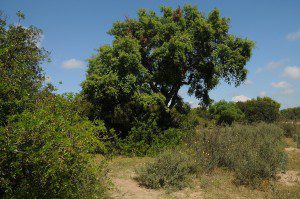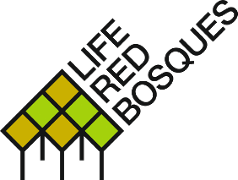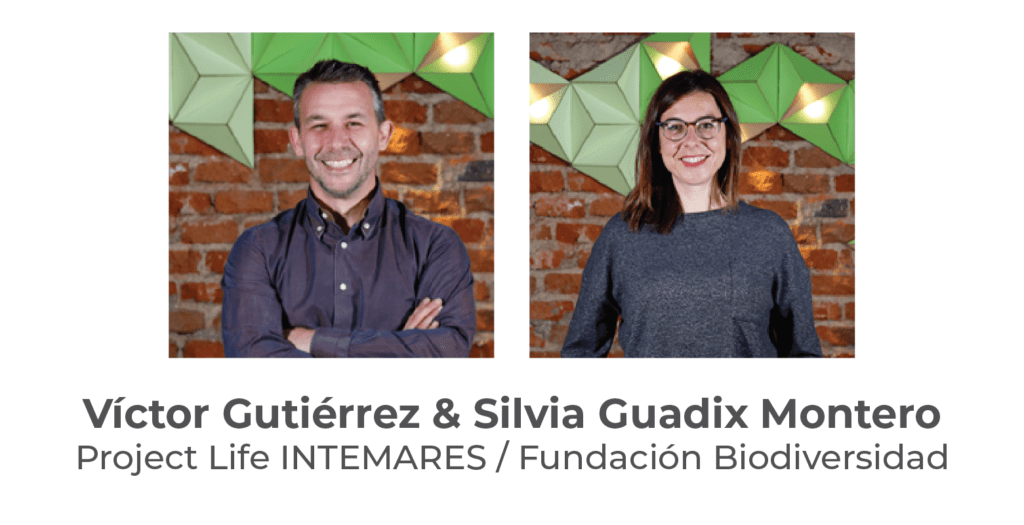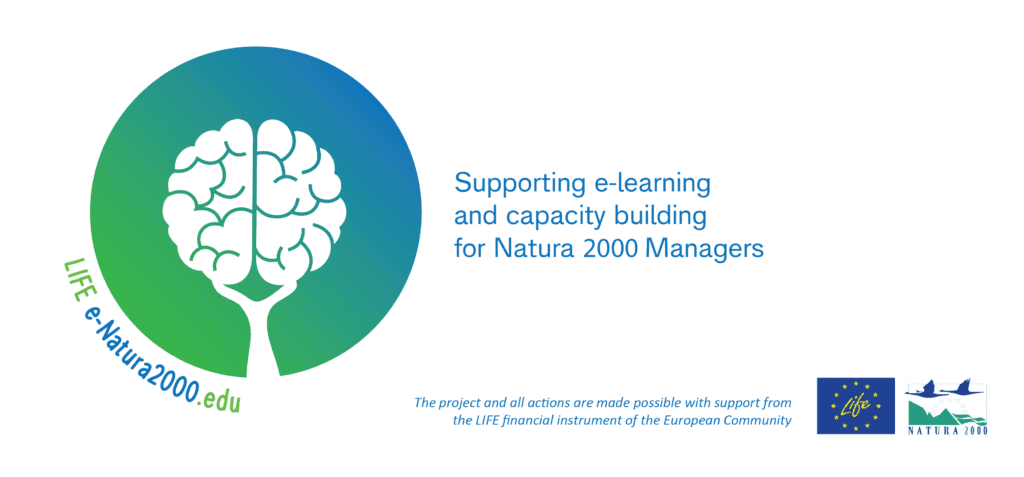Nominations for EUROPARC Council and President are open!
EUROPARC General Assembly 2017, Termas de Sao Pedro do Sul, Portugal
Every three years the EUROPARC Federation Council, including the President, need to be elected. This year, at the General Assembly in Austria, EUROPARC members will elect a new Council and President.
The Federation will need enthusiastic, interested men and women, from any member of the EUROPARC Federation across Europe. We therefore encourage all members from all our member countries to participate.
Nominations are open until the 31st of August 2020.
Nominations are exclusive for EUROPARC members
All information and the nomination form is available on this page. Please note that this page is password protected. If you are a member and do not have the password, please drop us an email to members.europarc@europarc.org.
If you are interested in taking up this amazing challenge and opportunity, as a member of the EUROPARC Federation, you need to seek a nomination from another member. A member cannot nominate a person from within its own organisation.
Alternatively if you/your organisation, as a member of the Federation, have identified a suitable person (from another organisation ) then
- check their organisation remains a member of EUROPARC (we can do that for you too)
- please seek the approval of the individual, then complete the nomination form
Challenges for the new EU Forest Strategy
The European Commission will prepare a proposal for the new EU forest strategy with the objective to propose a coherent policy framework on European Forests. For the moment, the European Parliament and Committee of Regions have already started to debate about it. Beyond the managerial expertise on forests, the members of EUROPARC Federation will be impacted by these policies. The LIFE Red Bosques shared with us some of the challenges and management recommendations for the Mediterranean forests.
European forests – and in particular the Mediterranean ones – are at a crossroad.
After centuries of very intense use followed by abrupt abandonment, most of the forest area is today formed by young or rejuvenated masses, with a very simplified biodiversity, which are particularly vulnerable to disturbances such as large fires and pests.
Due to inaction and continuous policies it is necessary to take actions so that our forests, essential for the well-being of society, are in a good state of conservation that ensures their long-term survival. As 50% of the area protected by Natural 2000 are forests, improving their conservation status is a high priority for the EU and its member states. In this sense, the new 2030 Biodiversity Strategy and the European Green Deal developed by the Commission are relevant opportunities to put forest conservation on the international agenda.
The LIFE RedBosques project has formulated some challenges and management recommendation which should be considered within the new EU Forest Strategy from the perspective of Mediterranean forests.
Challenges and management recommendations:
Forest Management
Valuing the set of services that forests provide to society by incorporating a greater variety of long-term objectives into forest management, like biodiversity conservation, recovery of ecological processes or adaptation to climate change.
Identifying and characterizing the last existing mature stands as referents for a forestry that promotes greater heterogeneity and diversity.
Ensuring the effective protection of those mature stands through appropriate legal instruments.
Forest management aimed at improving conservation status should become an opportunity to obtain financial resources. For this the dialogue with European fund managers must be improved.
Carefully assessing forestry oriented towards mitigation actions in order not to conflict with biodiversity values and the preservation of the full array of services forests provide.
Training

Mediterranean Forest © David Morris www.flickr.com/photos/davidjmorris/
Improving the knowledge of the dynamics of Mediterranean forest ecosystems. Unlike boreal and Atlantic forests, Mediterranean forests are periodically affected by high intensity disturbances. Therefore, existing models must be adapted to the reality of landscapes.
Promoting a change of mentality at all levels among forestry by improving the training of all actors involved, from the political to the technical level in order to incorporate new objectives into the traditional management.
Communication
Improving the communication of the value of forests in general and mature stands in particular, and of the different management options necessary for their conservation. This communication should be addressed to society in general as well as to decision makers and forest owners.
Raising awareness of all actors involved for the need to improve the state of forest conversation, more beyond the direct economic benefit. The management of risks caused by the climate change and the maintenance of the property in a good state of conservation should be an incentive for the forest management.
To learn more about the challenges and management recommendations from the RedBosques Project please download the information sheet here:
Recommendations EU forest Strategy
About LIFE RedBosques Project

The LIFE RedBosques project aims to improve the management of Spanish Mediterranean forests included in Natura 2000, facilitating access of practitioners to state-of-the-art knowledge. The project’s goal is that forest managers effectively include biodiversity conservation and climate change adaptation objectives in their daily practice. Learn more about the project, their activities and goals on the website or watch the Video!
It’s the lack of nature, stupid!
The current exceptional situation reveals the flaws in our system and will call into question the standards of our society. What if nature is the solution? The president of the EUROPARC Federation, Ignace Schops, reminds us of the essential importance of protecting nature in the face of these crises and, above all, of the opportunity to reinvent ourselves. Every crisis is an opportunity for a paradigm shift.
Article issued by Ignace Schops.
Sometimes, the world needs a shock therapy! With the Corona outbreak we abruptly lost our comfort zone. The pandemic puts our world completely upside down. What was a standard yesterday will be questioned tomorrow. We need to reinvent ourselves and accept that the solutions of the past are not fit for purpose anymore in the future. The new sustainable and transformative change can boost the interest in the restoration and the protection of our natural heritage as well.
What was a standard yesterday will be questioned tomorrow.
“It’s the economy, stupid”! This famous oneliner was used by Bill Clinton to compete with George W Bush in his race to win the presidential elections in 1992. At the time US and global leaders were convinced that the economy was the only and most important element to develop a prosperous and healthy community. Bill Clinton won the elections and a blind faith in “globalization” was the solution. The voice of environmental movement was not emerged to full power yet, so the call for a sustainable balance within the planetary limits was not heard. But as we know of Bob Dylan: “The times, they are A-changin”.
With the Corona outbreak, a new environmental episode arises, and this episode is there to stay. Infectious diseases exist as long as we walk on this planet. They appear in many ways and with various impact. They can be friendly or deadly. Coronaviruses that are endemic to humans are not deadly at all, but those who hang out in animals can become deadly. These viruses have not been circulating in humans before, so there is no immunity system to protect us.
Over time we witness more zoonotic diseases, animal infection diseases that jump over to humans like Ebola or AIDS. The Coronavirus is a zoonotic disease as well. But there is more. The coronavirus and the SARS outbreak of 2003 have two things in common. They are both related to the coronavirus family and are both coming from animals of a “wet market” in China. At a wet market you can still buy living or dead animals like dogs, cats, bats, snakes, chickens, pangolins, etc. The Wuhan coronavirus is thought to have originated in bats, which may have passed the disease to one of a few potential intermediary species (a pangolin), which then passed it to humans.
“If they are so dangerous and cause deadly diseases, kill all the bats” is loudly heard. But we rarely hear this request of scientists because – like environmentalists – they know that killing bats is not the solution, quite the opposite! The reasons for an increasing zoonotic disease are the rapid loss of biodiversity and the silent collapse of natural ecosystems! Human induced ecological destruction increasingly brings animal pathogens (infection agents, germs) into contact with human populations, while human technology and activities spread those pathogens on an ever increasing scale and faster than ever before. By traveling we spread them across the world in no time!
It is not the economy, but the lack of nature !
Instead of increasing the problem we urgently need to restore and increase our natural habitats. Make and give space to save ourselves as well. EUROPARC Federation will take this message forward and will convince our decision-makers that business as usual is not good enough! And we have a damn good access with the New Green Deal of the European Union!
Ignace Schops, President of the EUROPARC Federation, March 2020
Webinar: engaging stakeholders for marine conservation
- Wednesday, 25th March 2020
- 11:00 CET
- participation is free but registration is needed. Register here.
How to create public consensus for the management of our natural resources? Understanding your audiences, and effectively communicating is a fundamental competency for any Protected Area and Natura 2000 manager. Which strategies can Protected Areas use to identify relevant actors, and boost engagement?
Within the Life e-Natura2000 blended course “Competent Inclusive Communications”, we invited LIFE INTEMARES, the largest marine conservation project in Europe, to share their experience in public engagement. In this webinar, you will learn how they have identified their key actors, before and during the project, and hear about the innovative participatory processes they designed to increase stakeholder’s participation.
During the session, Víctor Gutiérrez, European projects & LIFE coordinator, and Silvia Guadix Montero, responsible for Participation, governance and capacity building, will share their experience and three practical case studies. In the final discussion, you will be able to direct your questions and share your experiences with the participants.

About LIFE INTEMARES
The main objective of the LIFE IP INTEMARES “Integrated, innovative and participatory management of the Natura 2000 Network in the Spanish marine environment”, is to achieve a consolidated network of Natura 2000 marine areas. This implies an efficient and integrated manner, with the active participation of the relevant sectors involved, and with research as a basic tool for decision-making.
INTEMARES promotes innovative approaches in relation to the marine Natura 2000 network, in order to become reference areas for a new production model within the framework of a more sustainable and low carbon economy, involving socio-economic sectors and users of the sea in the management of these sites.

The Ministry of Ecological Transition and Demographic Challenge coordinates the project through the Biodiversity Foundation and also acts as partner of the project through the General Direction of Sustainability of the Coast and Sea.
![]()
REGISTER HERE
